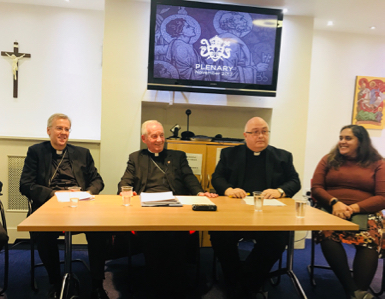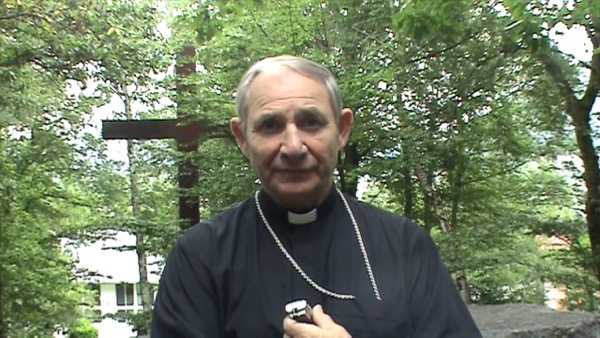"Calais" - for many travelling from England the name means the beginning of a holiday as their vehicles rattle off the ferry onto a spacious, perfectly surfaced French motorway and speed them south into the Gallic countryside. For others Calais means a stopping place after a long and often treacherous journey from their homeland. For them Calais means everything and nothing.
On a bitterly cold morning in late November I met some of them. The most striking thing, considering that they are travellers, is the total absence of any possessions, no bags of any description. Literally all they have is what they wear. Dressed uniformly in jeans and short zipped jackets they look like a group of young men one would encounter in any town centre.
On a patch of grassland beside trees on the edge of a motorway leaning to Calais' port they had lit a fire with some fallen branches. The trees had been pruned, I was told, by the authorities to prevent them providing shelter. On the other side of the motorway, a wall topped with barbed wire, concealed parked lorries.
Close to the fire are two benches that provide seating for about twenty. Secours Catholique, the French Caritas agency whom I am accompanying, know where they assemble. Before setting out to meet these migrants a huge container of tea, with lots of sugar, (sugar provides energy) had been prepared.
Secours Catholique and their volunteers are to be commended for the relationships they built, for them there is an embrace and wishes of peace. It is encouraging that the migrants recognise and accept their friendship and concern for their welfare. It is truly humbling that they who have slept out overnight rise to offer a seat closer to the fire to those of us who are well fed and slept in a bed the night before.
Soon several more young men appear, physically slight but hardy. The thousands of miles they have already travelled hasn’t diminished their spirits, they approach each of us visitors and greet us warmly with a handshake and wishes of peace.
Among this group, all from Eritrea, is one young man of about fourteen, one fifteen and another about a year older. They are quieter than the others and after tea, slip away by themselves through the trees in the direction of the motorway.
Answers to the question which we long to ask, "how long have you been here" varies. Some have been here six months, some one month. Rarely does one find those who have a travelling companion but it is interesting that many of them hail from the same town or village in Eritrea.
I soon discover why they have no baggage, no sleeping bag or blanket. Determined that another camp or jungle is not established the police confiscate or render useless anything that is likely to make their life more bearable. Thanks to some charities each of the young men have good footwear and many are equipped with woollen hats and scarves, nevertheless having no other covering means they are truly destitute.
Later I meet several more young men from Sudan and South Sudan. "Why did you leave home and come here" I ask. One relates the story of his former life living on the border of those two countries and working on the family farm. One day some soldiers arrived, accused him of being a rebel, arrested and imprisoned him. Upon release his only wish was to escape and seek a better life. He tells of his journey through Libya and across the Mediterranean in an inflatable before being rescued by the Italian navy. Here in my presence was not a television picture of some anonymous person but a breathing, living human being. Not a beggar but someone who longs for a better life.
In the afternoon I encounter some others who have found shelter due to the providence of the Catholic Worker; one of whom is content to make a home in France. The Catholic Worker Association however cannot provide a home or provide a meal for all, some say eight hundred.
The purpose of my trip to Calais was to furnish myself with genuine information of the migrants’ plight, to hear their stories and to determine what action is required.
Intervention is needed by those who have the power and means to make a difference. Food, clothing and shelter is a priority to alleviate conditions as the weather grows colder. Engagement by the authorities with those stranded in Calais is needed to resolve their state of limbo. Promises to reunite unaccompanied minors with their families have to be honoured.
PICTURE: Bishop Paul McAleenan, Auxiliary Bishop of Westminster ©Twitter



 Loading ...
Loading ...
What do you think?
You can post as a subscriber user ...
User comments (0)